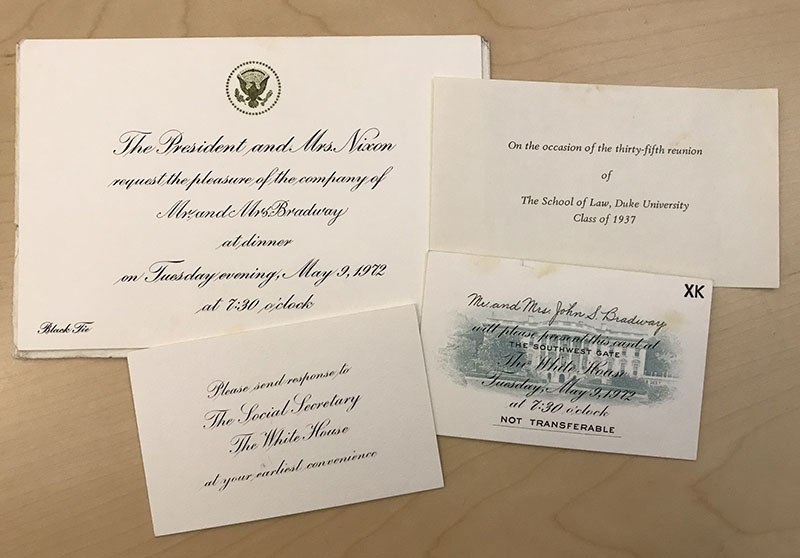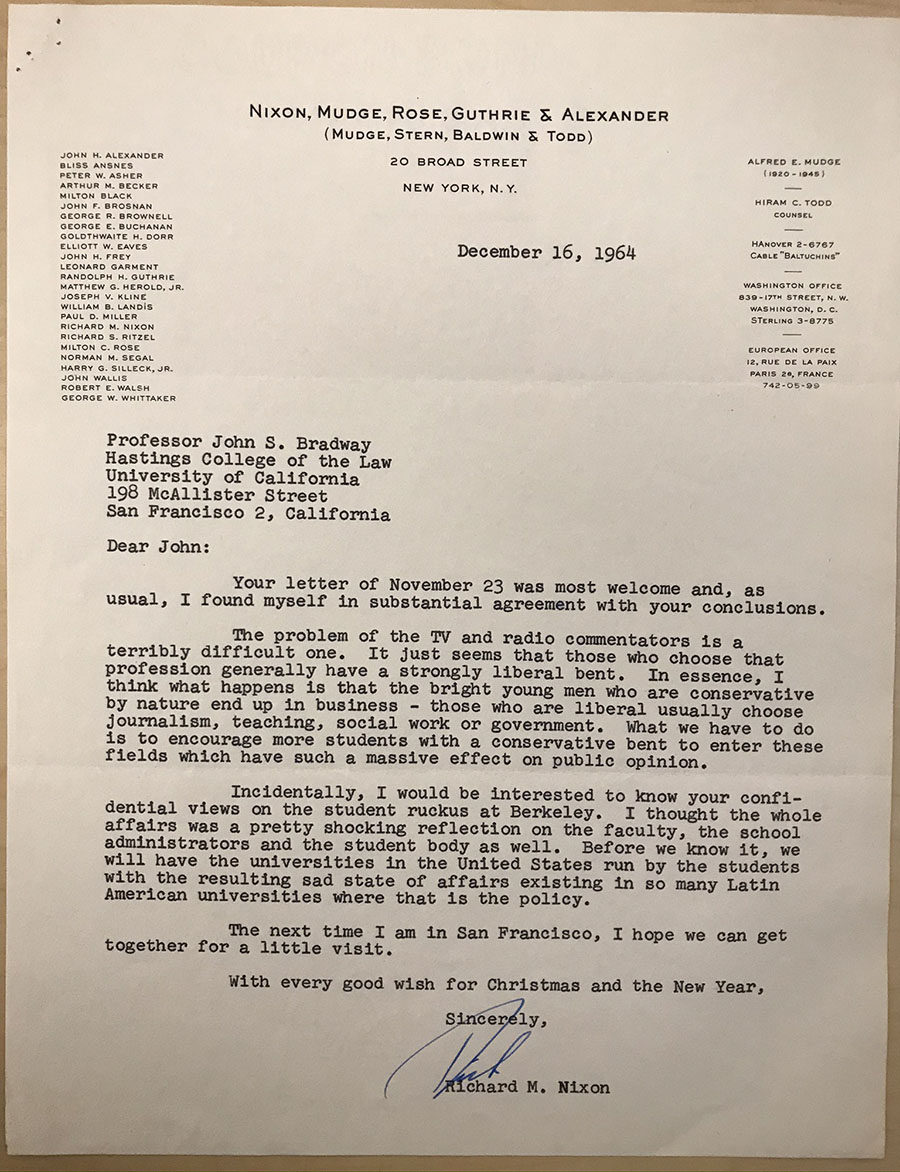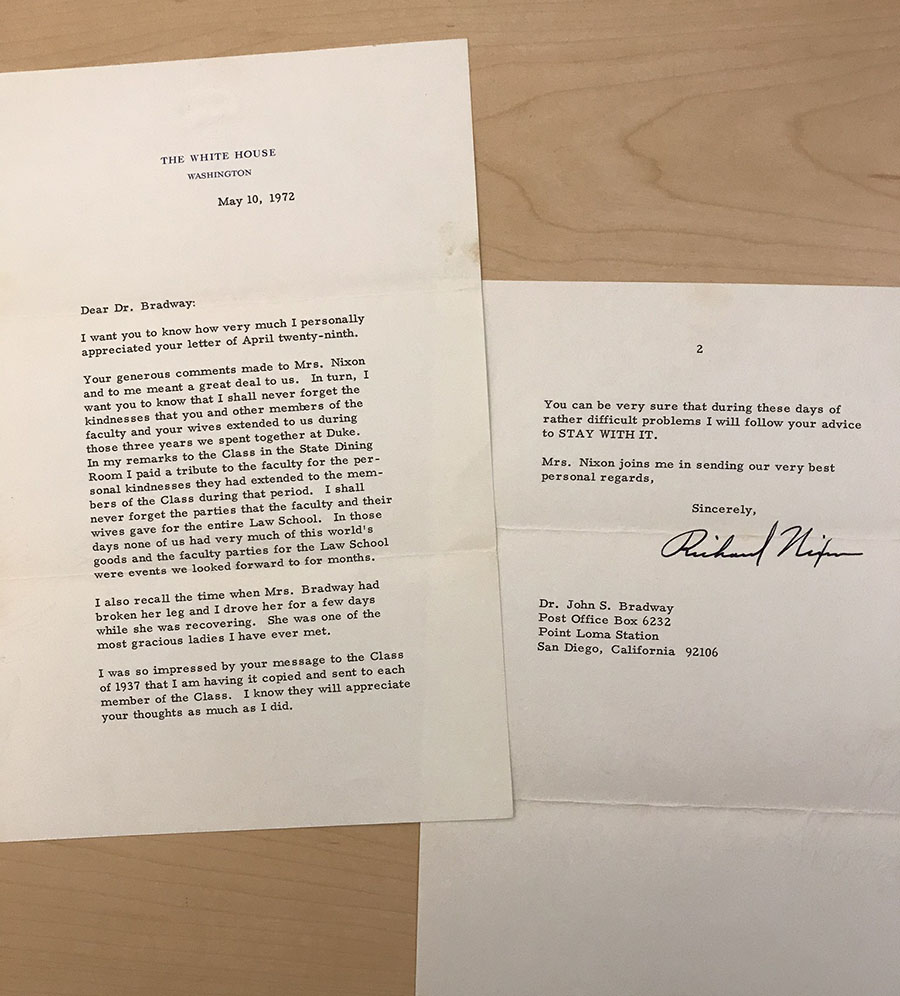Post contributed by Leah Kerr, Technical Services Processing Archivist for the Duke University Archives.
At Smith Warehouse, the Technical Services archival processing area of Bay 11 is quiet. But not because the librarians working there have shushed everyone. Rather, the archivists, catalogers, interns and student workers perform many tasks by themselves. And most of us are wearing headphones or earbuds. Undoubtedly we are listening to music, podcasts, sports events, and whatever else we can stream. As a self-proclaimed news junkie, I often listen to live broadcasts.
As an archivist of University Archives records, my worlds collided in a “deja vu all over again” manner. At the end of January and beginning of February I was listening to the impeachment hearings and trial of President Donald J. Trump as I was processing the John S. Bradway Correspondence with Richard M. Nixon records. The collection is comprised of letters written between the Duke law professor, and his former student from 1959-1978. Nixon graduated from Duke Law in 1937, and the two men stayed in touch. These letters were recently gifted to Duke from a historical society in New Jersey.

The correspondence covers the time periods that Nixon worked as an attorney at a law firm, a United States Vice President, a newly-elected United States President, an embattled impeachment defendant, and finally, a former President looking back at his legacy. But the bulk of the letters fall between 1973 and 1974, when President Nixon was first tied to, then accused of, and later resigned due to the Watergate break-in and scandal and subsequent White House cover-up.

Bradway and Nixon’s correspondence show the respect each had for the other. They often mention their spouses, Mary Bradway and Pat Nixon, offering their greetings to them in each letter. The men also write glowingly of each other, and Bradway offered his suggestions to “stay with it” and his view that neither the Republican party nor the country would have anything to gain by Nixon resigning. When Nixon finally did resign and leave Washington, the correspondence continued, and Bradway urged him to write “a book or a series of articles” giving his side of the Watergate story.

Processing this collection with impeachment trial streaming through my earbuds led to an unusual echo chamber. The same phrases that I saw in the documents were being repeated on the floors of the House and the Senate. For example, liberal media was mentioned in both the recent impeachment hearings and the correspondence. The phrase “Impeachment is a political process” and concerns about the health and future of the Republican party were discussed in the letters I read, and in the very recent commentaries I heard. For me it was a startling reminder of how primary source documents very clearly connect to our present-day lives and current affairs.


